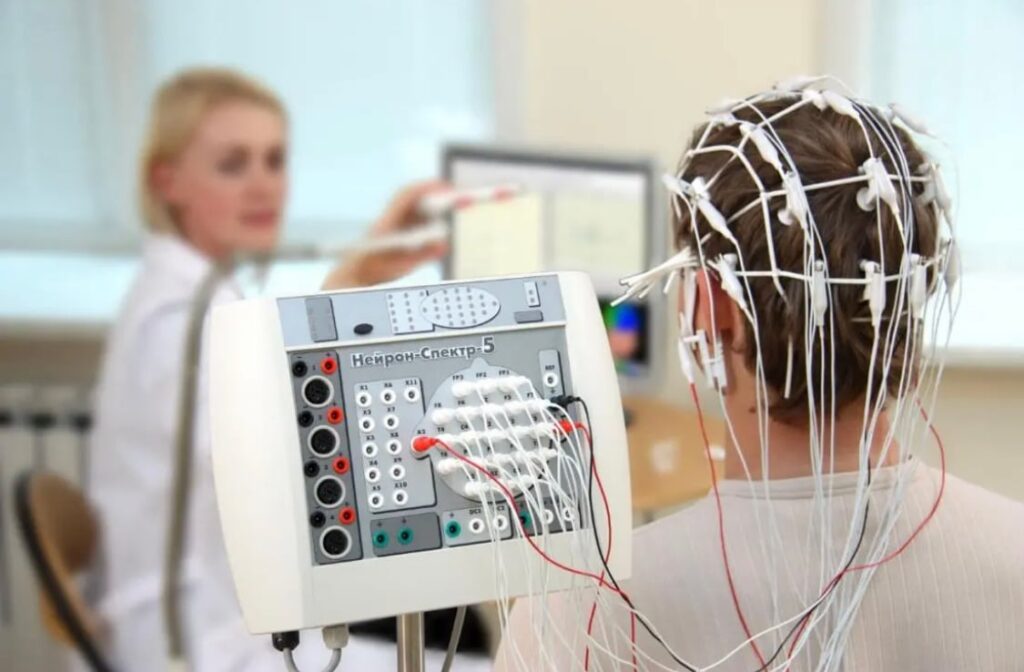Breaking the Chains of Epilepsy Myths: Separating Fact from Fiction
Epilepsy is a neurological disorder that affects millions of people around the world. Despite its prevalence, there are still many myths and misconceptions about epilepsy that persist in society.
These myths can lead to discrimination, and stigma, and even prevent people from seeking treatment. In this blog, we will debunk five common epilepsy myths and provide accurate information to help people better understand this condition.
Epilepsy is a complex neurological disorder that affects millions of people worldwide. Unfortunately, there are still many myths and misconceptions surrounding epilepsy, which can lead to stigma, discrimination, and even violence towards people with the condition.
This can result in social isolation, anxiety, and other negative consequences that can impact the quality of life for those with epilepsy and their families.
Myth 1: Epilepsy is a mental illness
Epilepsy is a neurological disorder that affects the brain and causes recurrent seizures. While seizures may be associated with altered states of awareness, such as confusion or loss of consciousness, epilepsy is not a mental illness.
Mental illnesses are conditions that primarily affect a person's mood, thinking, and behavior, such as depression, anxiety, or schizophrenia. Although epilepsy can impact a person's mental health, such as causing anxiety or depression, it is not a mental illness in itself.
Therefore, people with epilepsy should not be stigmatized or discriminated against as having a mental illness.
Myth 2: People with epilepsy are intellectually disabled
Intellectual disability is a condition in which a person has significant limitations in intellectual functioning and adaptive behavior. While some people with epilepsy may also have an intellectual disability, most people with epilepsy have normal intelligence. Many famous historical figures are believed to have had epilepsy, such as Julius Caesar, Fyodor Dostoevsky, and Vincent van Gogh, and they were not intellectually disabled.
Therefore, people with epilepsy should not be assumed to have an intellectual disability, and they should be given the same opportunities as anyone else.
Myth 3: All seizures are the same
Seizures are the main symptom of epilepsy, and they can vary widely in type, severity, and duration. Some seizures involve convulsions and loss of consciousness, while others may only cause brief lapses in awareness or subtle movements.
The type of seizure someone experiences depends on the part of the brain affected and the underlying cause of the epilepsy. For example, some seizures may start in a specific area of the brain and spread to other areas, while others may affect the entire brain.
Therefore, it is important to recognize the different types of seizures and understand their characteristics and triggers to manage epilepsy effectively.
Myth 4: Epilepsy is always genetic
While genetics can play a role in the development of epilepsy, it is not always the cause. In fact, many cases of epilepsy have no known cause, and it can develop as a result of various factors, such as head injuries, infections, and brain tumors.
However, some types of epilepsy are caused by genetic mutations or inherited traits, and having a family member with epilepsy can increase the risk of developing the condition.
Therefore, it is important to identify the underlying cause of epilepsy to determine the best treatment options and preventive measures.
Myth 5: Epilepsy is contagious
Epilepsy is not contagious and cannot be spread from person to person through touch, saliva, or any other means.
The myth that epilepsy is contagious can lead to social isolation, discrimination, and even violence towards people with epilepsy. It is a neurological disorder that affects the individual who has it, and it poses no risk to others.
Therefore, people with epilepsy should not be treated differently or excluded from social activities based on this misconception. Instead, they should be supported and included in society like everyone else.
In conclusion
It is important to recognize and address the myths and misconceptions surrounding epilepsy to promote greater awareness, understanding, and acceptance of the disorder.
By doing so, we can help improve the lives of those affected by epilepsy and reduce the negative consequences associated with stigma and discrimination. People with epilepsy should not be stigmatized or discriminated against but should be supported and included in society like everyone else.
Through education and advocacy, we can work towards a world where people with epilepsy can live full and productive lives, free from fear and discrimination.
FAQs
What is epilepsy?
Epilepsy is a neurological disorder that causes recurrent seizures. Seizures can vary in type, severity, and duration, depending on the part of the brain affected and the underlying cause of the epilepsy.
What causes epilepsy?
Epilepsy can be caused by various factors, including genetics, head injuries, infections, brain tumors, and other medical conditions. In many cases, the cause is unknown.
Are all seizures a sign of epilepsy?
No, not all seizures are a sign of epilepsy. Seizures can occur due to various factors, such as alcohol or drug withdrawal, fever, low blood sugar, or head injuries.
There is no cure for epilepsy, but it can be managed with medications, surgery, and other treatment options. Many people with epilepsy are able to lead normal lives with proper treatment and care.
Can epilepsy be inherited?
In some cases, epilepsy can be inherited, but not always. It depends on the specific type of epilepsy and the underlying genetic factors.
Are people with epilepsy at risk of sudden death?
Yes, people with epilepsy may be at risk of sudden unexpected death in epilepsy (SUDEP), which is a rare but serious complication of the disorder.
Can epilepsy affect a person's memory or cognitive abilities?
Yes, epilepsy can affect a person's memory and cognitive abilities, especially if seizures occur in the part of the brain responsible for these functions. However, this varies depending on the individual and the severity of their epilepsy.
Can stress trigger seizures in people with epilepsy?
Yes, stress can be a trigger for seizures in some people with epilepsy. It is important to identify individual triggers and develop coping strategies to manage them.
Can people with epilepsy drive?
In many cases, people with epilepsy can drive if their seizures are well controlled and they meet certain requirements, such as being seizure-free for a certain period of time.
Are people with epilepsy able to work and live normal lives?
Yes, with proper treatment and support, many people with epilepsy are able to work, go to school, and live normal lives. However, there may be some limitations and challenges, depending on the individual and the severity of their epilepsy.

























